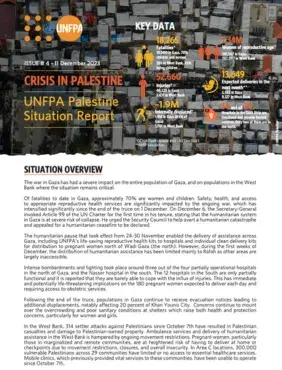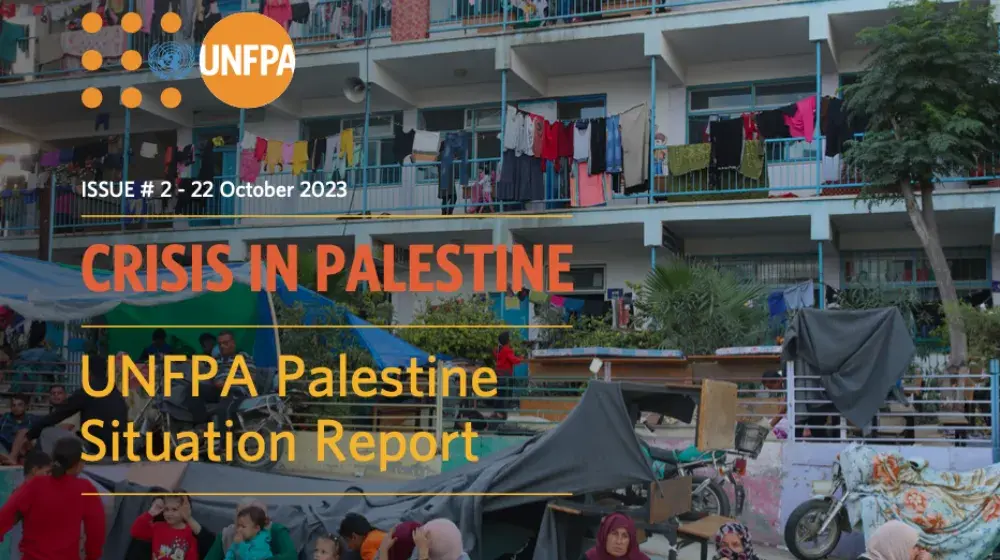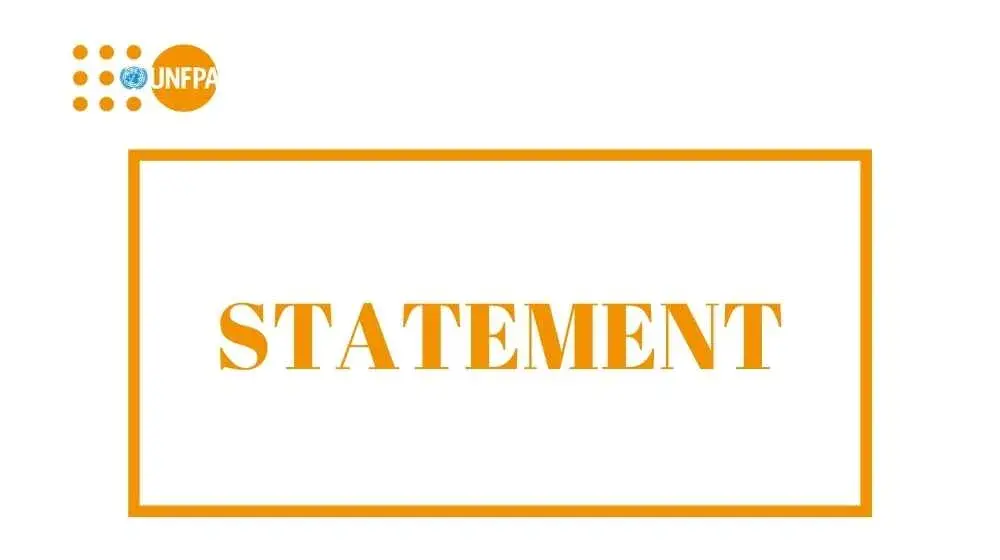The war in Gaza has had a severe impact on the entire population of Gaza, and on populations in the West Bank where the situation remains critical.
Of fatalities to date in Gaza, approximately 70% are women and children. Safety, health, and access to appropriate reproductive health services are significantly impacted by the ongoing war, which has intensified significantly since the end of the truce on 1 December. On December 6, the Secretary-General invoked Article 99 of the UN Charter for the first time in his tenure, stating that the humanitarian system in Gaza is at severe risk of collapse. He urged the Security Council to help avert a humanitarian catastrophe and appealed for a humanitarian ceasefire to be declared.
The humanitarian pause that took effect from 24-30 November enabled the delivery of assistance across Gaza, including UNFPA’s life-saving reproductive health kits to hospitals and individual clean delivery kits for distribution to pregnant women north of Wadi Gaza (the north). However, during the first weeks of December, the distribution of humanitarian assistance has been limited mainly to Rafah as other areas are largely inaccessible.
Intense bombardments and fighting took place around three out of the four partially operational hospitals in the north of Gaza, and the Nasser hospital in the south. The 12 hospitals in the South are only partially functional and it is reported that they are barely able to cope with the influx of injuries. This has immediate and potentially life-threatening implications on the 180 pregnant women expected to deliver each day and requiring access to obstetric services.
Following the end of the truce, populations in Gaza continue to receive evacuation notices leading to additional displacements, notably affecting 20 percent of Khan Younis City. Concerns continue to mount over the overcrowding and poor sanitary conditions at shelters which raise both health and protection concerns, particularly for women and girls.
In the West Bank, 314 settler attacks against Palestinians since October 7th have resulted in Palestinian casualties and damage to Palestinian-owned property. Ambulance services and delivery of humanitarian assistance in the West Bank is hampered by ongoing movement restrictions. Pregnant women, particularly those in marginalized and remote communities, are at heightened risk of having to deliver at home or checkpoints due to movement restrictions, closures, and overall insecurity. In Area C locations, 300,000 vulnerable Palestinians across 29 communities have limited or no access to essential healthcare services. Mobile clinics, which previously provided vital services to these communities, have been unable to operate since October 7th.




